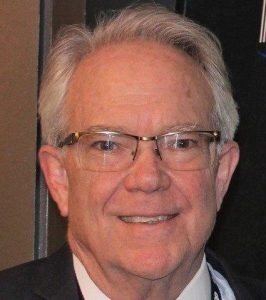It’s hard to refocus on “normal” just as we seem to be finally getting a handle on the COVID pandemic with new vaccinations reaching millions every day across America.
But a big regulatory deadline is coming up in October for many individual Americans, and meeting it is going to depend on already over-stressed state IT systems and staffs working very well – and perhaps in overdrive – as that deadline approaches.
Sound like risky business? The jury is out, but here are the facts about what states need to handle over the next seven months to make sure that Americans have the mobility they crave so badly after a year in lockdown.
REAL ID Requirements
The looming issue isn’t deadly, but there is a deadline, and it’s called – REAL ID.
Remember back to early 2020 before we were facing initial virus-driven lockdowns, quarantines, and mask requirements – and the prospect of a half million-plus American deaths was unthinkable. At that time, the greatest issue facing many state governments was compliance with the Real ID Act of 2005.
As many will recall, the REAL ID law sets forth the rules and criteria regarding state issuance of a driver’s license or identification card. That includes the look of the card, what data is on the card, what authentication documents must be provided to obtain one, and what information is stored in each state’s database of licensed drivers and identification card holders.
It’s a vital issue for many because a REAL ID-compliant license or card will be required to board an airplane and to enter many Federal facilities and other sensitive sites. Other documents such as a U.S. Passport will also be acceptable.
There’s little wiggle room for delay, as the first deadline for possessing the new card was last October.
However, the long lines at many state Department of Motor Vehicles’ (DMV) offices across the country were soon prohibited as the pandemic spread, and the closing of DMV facilities made the October 1, 2020 deadline impossible to enforce, triggering a-one year postponement by the Trump administration.
Dreading the DMV
So here we are, less than seven months short of the new deadline, and REAL ID is back in the news. While all states have been certified as having compliant licensing programs for REAL ID, many state residents have not obtained the compliant cards. The primary reason for that is the prerequisite that obtaining the new REAL ID card requires the oft-dreaded trip to the DMV.
Unsurprisingly, figures from last fall indicated that while just over 100 million REAL ID driver’s licenses and identification cards had been issued, that figure represented less than 40 percent of people in the U.S. with the old driver’s licenses and identification cards.
And while it is true many of these folks will not need the new cards because they don’t travel, visit Federal facilities, or other restricted sites like nuclear power plants, many more probably will – at least with the first two scenarios.
Millions Need to Catch Up
The spokespeople for the California DMV told me last week that as of this month, 9.9 million state residents have received the new REAL ID compliant cards. They likewise informed me they estimate that another six million residents will still need to come into one of their 172 DMV field offices before the October 1, 2021 deadline. That means almost 900,000 people must visit a DMV office each month over the next seven months. That’s a lot even by California standards.
Let’s hope they are correct with their total estimate of 16 million. Last I checked that’s only just over half of California’s 30 million licensed drivers.
Given the human propensity for procrastination, California certainly won’t be the only state scrambling to issue compliant cards, and we hope that each state is successful.
But it would be a shame – and a totally avoidable one – if by next Thanksgiving, grandparents across the country, stuck in isolation from their families for the past year and a half, can’t make it past TSA at the airport.
Perhaps there’s another deadline postponement in the works…
